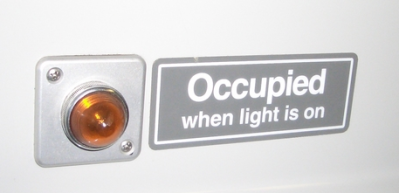Last week, as I was up on the podium having my talk at XIV CNEIS introduced to a packed room of something like 1,500 people, I opened a bottle of water and placed it on the the cloth-covered row of tables between my laptop and another workstation. What I didn’t realize at the time was that I had in fact placed the bottle precariously on the gap between two tables. Immediately, the water bottle tipped and began to slowly empty its contents into my laptop’s keyboard.
As quickly as possible, I picked the bottle up and tried to right it. It immediately fell the other direction to dump what water remained into the keyboard of the other computer.
I beckoned to someone for a cloth, ignored what was going on as best as I could, and began to speak. I explained that my laptop might catch fire, explode, or simply stop working during the talk. Many people thought I was joking. I wasn’t.
I guess the fact that they thought I was joking is a testament to my ability to act cool under pressure. My laptop — at least it’s keyboard — is not doing as cool.
I wish I could say that last week saw my worst laptop and water related incident. However, last week is in competition with several occasions when I justified the extra price paid for a Panasonic Toughbook CF-25.
On the second most spectacular occasion, I came home late and tip-toed into a room I shared with my girlfriend at the time who was already asleep, I plugged the laptop into its AC adapter and then I proceeded to drop the machine into a square laptop-shaped plastic bucket that I found lying conveniently next to the bed.
It was the bucket of my water my girlfriend had been soaking her feet in and I winced as I heard the splash of my laptop hitting the water and the thud of it hitting the bottom of the bucket.
Due to the toughbook’s water resistant design, last week’s relatively minor incident will almost certainly end up costing me more money to fix than the incident with the Toughbook. On the bright side, the workstation’s keyboard I also nailed last week seems to be fine.


